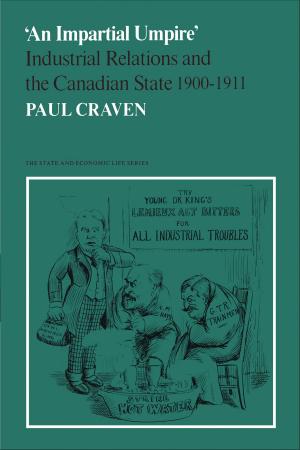States of Obligation
Taxes and Citizenship in the Russian Empire and Early Soviet Republic
Nonfiction, History, Eastern Europe, Business & Finance, Economics, Theory of Economics, Modern| Author: | Yanni Kotsonis | ISBN: | 9781442696334 |
| Publisher: | University of Toronto Press, Scholarly Publishing Division | Publication: | September 24, 2014 |
| Imprint: | Language: | English |
| Author: | Yanni Kotsonis |
| ISBN: | 9781442696334 |
| Publisher: | University of Toronto Press, Scholarly Publishing Division |
| Publication: | September 24, 2014 |
| Imprint: | |
| Language: | English |
Beginning in the 1860s, the Russian Empire replaced a poll tax system that originated with Peter the Great with a modern system of income and excise taxes. Russia began a transformation of state fiscal power that was also underway across Western Europe and North America. States of Obligation is the first sustained study of the Russian taxation system, the first to study its European and transatlantic context, and the first to expose the essential continuities between the fiscal practices of the Russian Empire and the Soviet Union.
Using a wealth of materials from provincial and local archives across Russia, Yanni Kotsonis examines how taxation was simultaneously a revenue-raising and a state-building tool, a claim on the person and a way to produce a new kind of citizenship. During successive political, wartime, and revolutionary crises between 1855 and 1928, state fiscal power was used to forge social and financial unity and fairness and a direct relationship with individual Russians. State power eventually overwhelmed both the private sector economy and the fragile realm of personal privacy. States of Obligation is at once a study in Russian economic history and a reflection on the modern state and the modern citizen.
Beginning in the 1860s, the Russian Empire replaced a poll tax system that originated with Peter the Great with a modern system of income and excise taxes. Russia began a transformation of state fiscal power that was also underway across Western Europe and North America. States of Obligation is the first sustained study of the Russian taxation system, the first to study its European and transatlantic context, and the first to expose the essential continuities between the fiscal practices of the Russian Empire and the Soviet Union.
Using a wealth of materials from provincial and local archives across Russia, Yanni Kotsonis examines how taxation was simultaneously a revenue-raising and a state-building tool, a claim on the person and a way to produce a new kind of citizenship. During successive political, wartime, and revolutionary crises between 1855 and 1928, state fiscal power was used to forge social and financial unity and fairness and a direct relationship with individual Russians. State power eventually overwhelmed both the private sector economy and the fragile realm of personal privacy. States of Obligation is at once a study in Russian economic history and a reflection on the modern state and the modern citizen.















